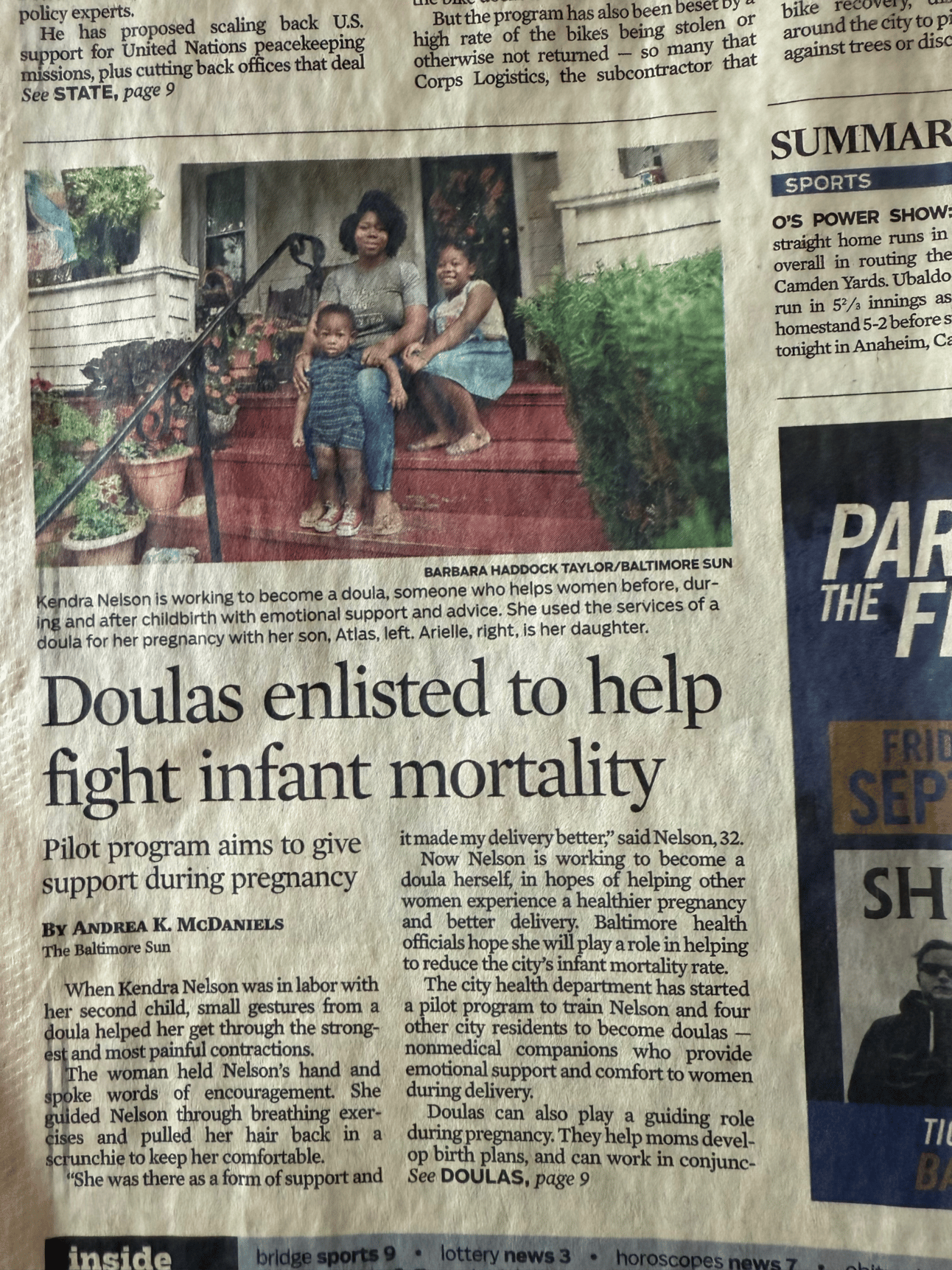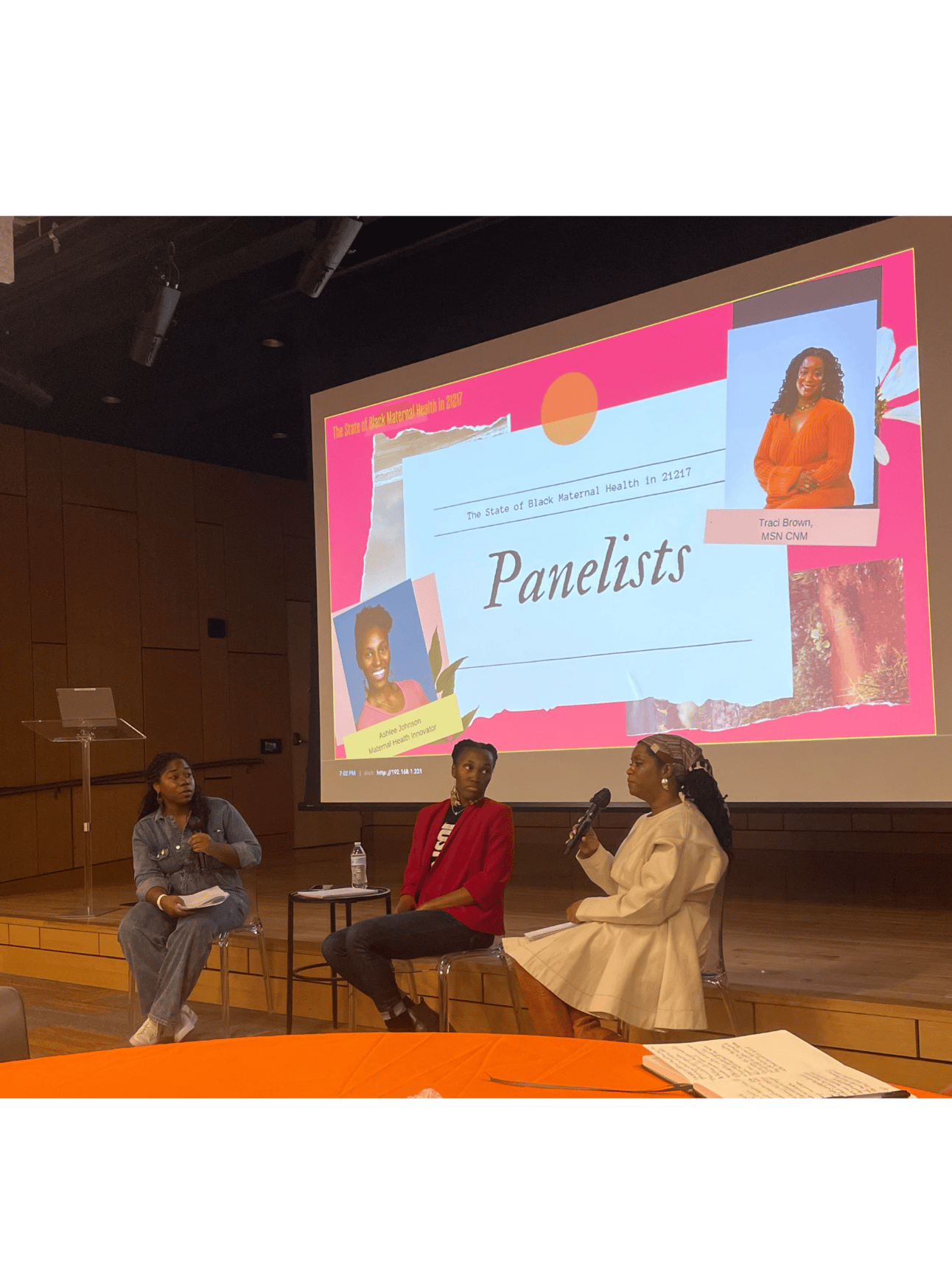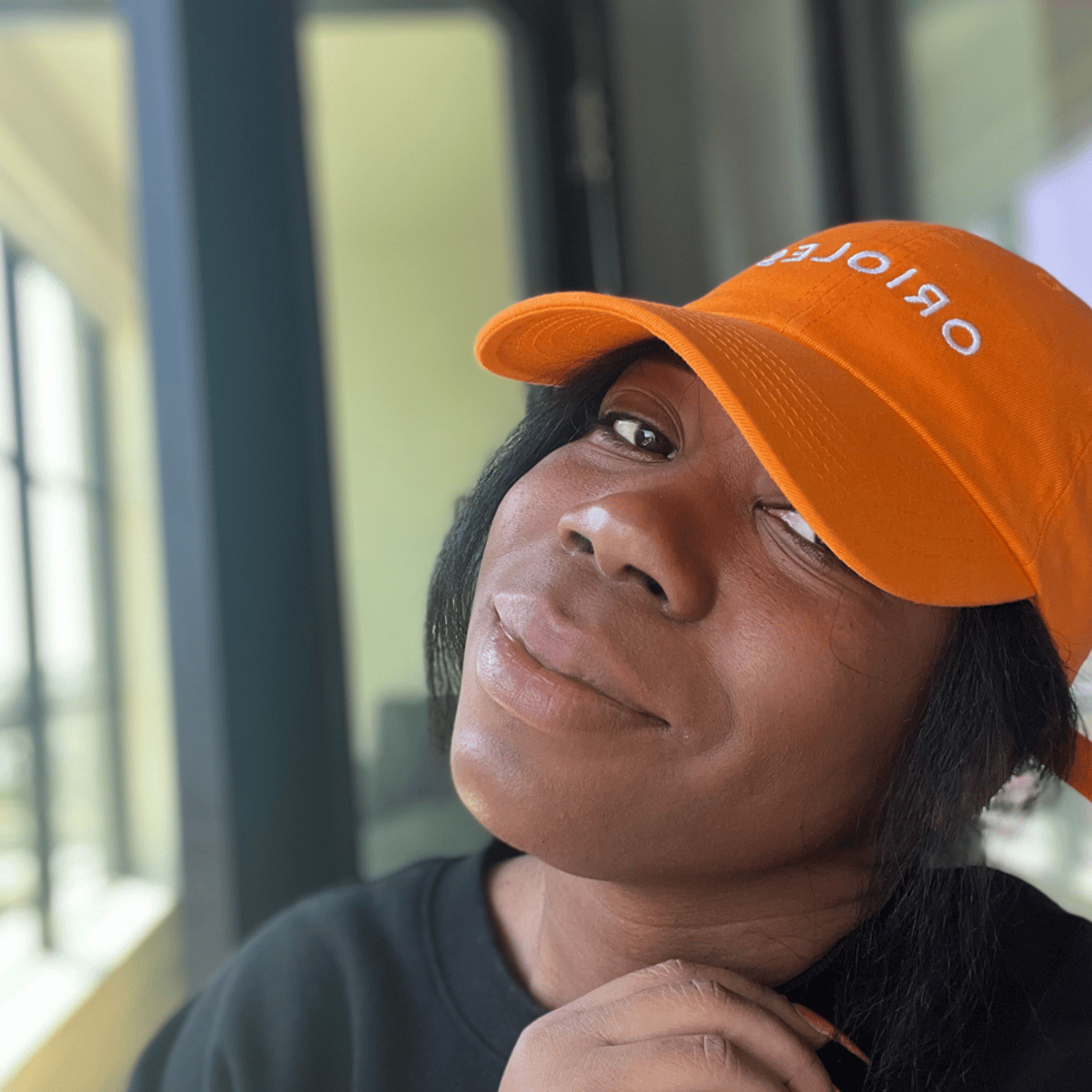Before I ever stood at the front of a room moderating a fireside chat, before I spoke about federal legislation and asset mapping and maternal health justice, I was seven years old, curled up on a couch in West Baltimore, watching Oprah Winfrey on TV.
That’s where the real education started.
Our house was chill. My mom - a housewife and homemaker, usually making dinner around 4 p.m., and my dad—a car salesman—worked long hours, nine to nine. After school, I’d do my homework while my mom cooked, and in the background—there they were: Oprah and Ricki Lake.
I can’t remember a time they weren’t on the screen. They were just there. Like a backdrop to girlhood. Like mentors we didn’t have to ask for.
Oprah’s guests stuck with me—celebrities, of course, but especially the thinkers. The authors. Toni Morrison in particular. I remember her telling Oprah that when your child walks into the room, your face should light up. That’s how they know they’re loved. I’ve held on to that all my life. I share it with every expecting parent I meet.
Ricki was the edgy one. Her show had a different tempo—rawer, louder, a little more street. Bonus points when I later found out she starred in Hairspray, which was filmed right here in Baltimore and directed by our city’s own quirky genius, John Waters.
At the time, I didn’t see these women as educators. I didn’t even know what I was learning. But years later, it’s clear that their presence—and their platforms—shaped my values, my leadership, and how I hold space for others.
Oprah and Ricki weren’t just part of the culture—they were making it. They told the truth in public. They gave people space to cry, confess, heal, transform.
Their shows taught me that storytelling is sacred. That ordinary people have extraordinary things to say. That you don’t need permission to take the mic—you just need presence.
I never imitated them directly, but looking back, I was preparing. I was on the debate team. I wrote essays at 4 a.m. and still got 90% or better. I was in dramatic reading competitions. I had a voice before I had a stage.
And as it turns out, the talk show hosts of the '90s were lowkey laying the foundation for my work today.
In my family, birth was never hidden—it was talked about. My mother always told our birth stories. She accidentally had my oldest sister at home and then went on to have all four of us naturally. So I grew up knowing that birth didn’t have to be scary. It could be sacred.
Still, it was Ricki Lake’s documentary The Business of Being Born that really lit the fire in me. I saw it around age 20, and it opened my eyes. I wasn’t pregnant, but I knew—when the time comes, it’s going to be different. My body, my choice. And that system? It wasn’t going to mistreat me.
When I was pregnant with my daughter, I took birth classes with her dad and made a plan. Labor lasted just six hours. I almost had her at home. When we got to the hospital, she was crowning within 10 minutes. It was a beautiful birth. I felt alive. Enthusiastic. Powerful.
And I wanted other Black women to feel that too.
My body, my choice. And that system? It wasn’t going to mistreat me.
That feeling—that deep, embodied knowing—was too good not to share. So I decided to become a doula.
By the time my daughter was three, I completed my DONA certification. After the birth of my son, (another beautiful, natural birth), I trained with Mamatoto Village’s Perinatal Community Health Worker program. That training, funded by a city pilot, landed me my first feature in The Baltimore Sun.

Baltimore Sun, Monday Edition August 7, 2017
There I was on the front page: a young Black mom on her stoop with her kids, talking about birth work and public health. That moment validated everything. It wasn’t just personal—it was political. It was worth printing.
I supported several births during that time—friends, community members, even a Black woman firefighter. I held hands. Pulled scrunchies into place. Whispered affirmations. And I realized something: I loved birth work, but my fire was too big to stay bedside.
I wanted to change systems. I wanted to push policy.
I wanted to shift the way our communities thought about life, care, and power.

And that’s how I ended up here.
This month, I curated and led a community meeting titled The State of Black Maternal Health in 21217. It was held through my civic work in West Baltimore, but every piece of it came from me.
I chose the theme. I built the format. I brought in the guests—two brilliant Black birth workers who also happen to be my friends and peers from the journey. I created a community asset mapping worksheet. I moderated the fireside chat.
And when I prepped for it, I literally wrote this in my notes:
“Oprah Winfrey, question style. Add jokes.”
And I delivered.
We laughed. We learned. The energy in the room was open, honest, and whole. I wasn’t nervous—I was ready. I had been talking to members and moderating convos through my jobs for years, but this one felt different. This one felt like a calling met with confirmation.
And then there was WYPR. Baltimore’s public radio showed up to cover it. That was big. It told me what I already knew: this mattered.
This wasn’t just a meeting. It was a moment. One that affirmed my voice, my vision, and my community.
I've been a doula. A mother. An organizer. A content creator. A civic director.
What it means to be a public figure shaped by womanhood, media, and birth work is this:
I get to be myself.
And that’s all I’ve ever wanted.
The little girl watching Oprah in Baltimore still lives in me. She’s just upgraded her platform. She’s teaching what she’s learned—45 minutes at a time. She’s smiling at her own kids when they walk into the room. She’s speaking up. She’s showing up.
If there’s one thing I want you to take away from this—it’s that the political is personal. Stories matter. They shape us. And once you’ve been given that kind of knowledge, that kind of truth—you have no choice but to apply it.
So here I am.
Applying a life well-lived.
✨ If I Had a Talk Show...
It would be called Charm Citizen. ( testing this out on youtube now)
Of course it would.
And It would be for everyone. For mothers, policy nerds, brunch girls, birth workers, block leaders, and dreamers. For people who love hard and fight smart. For anyone trying to live free and full, right where they are.
It would be rooted in Baltimore. In truth. In joy.
And if you're reading this? You’d already have a seat at the table.
